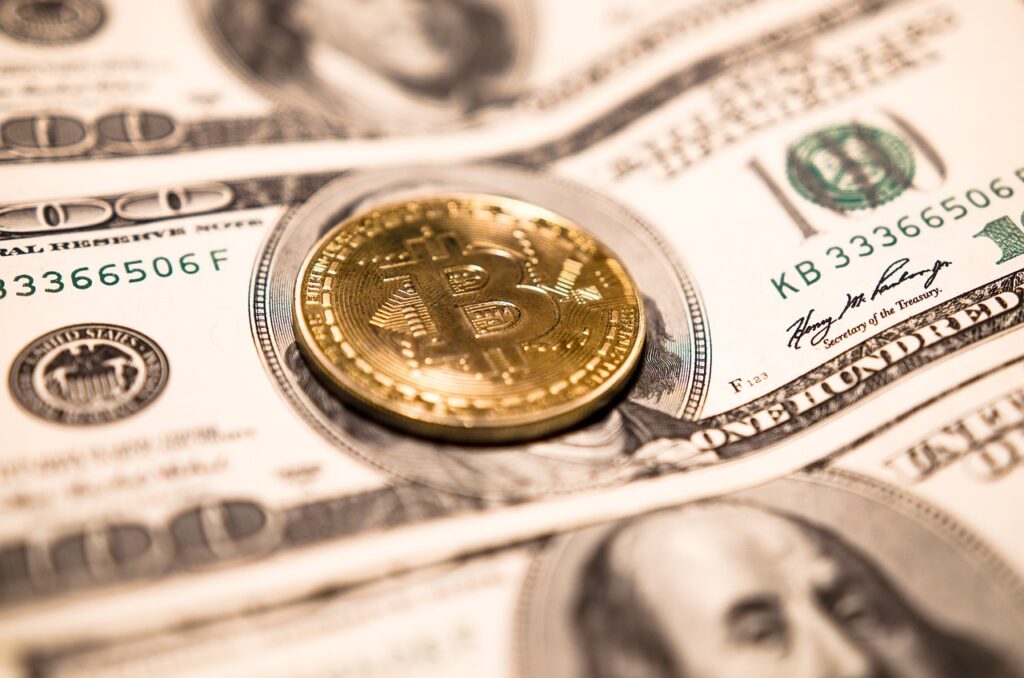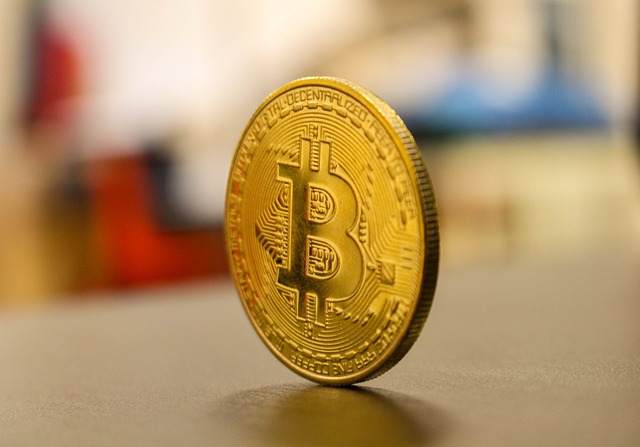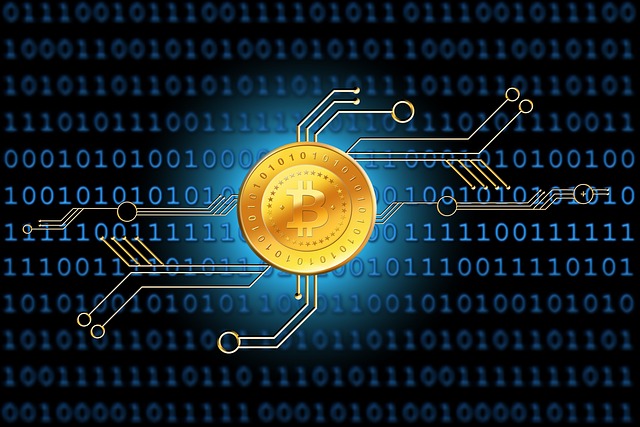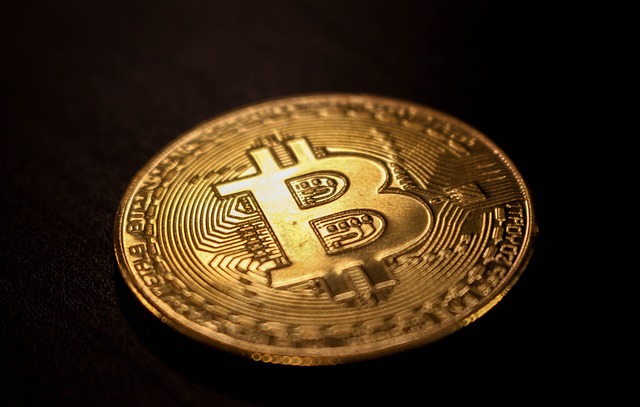The DeFi Project Revolution: What You Need to Know
The DeFi Project Revolution: What You Need to Know

Understanding the DeFi Project: A Beginner’s Guide
DeFi, short for Decentralized Finance, is a rapidly evolving and innovative space within the cryptocurrency industry. While traditional finance relies on intermediaries such as banks and financial institutions to facilitate transactions and provide services, DeFi aims to remove these intermediaries and create a more open and accessible financial ecosystem. It leverages the power of blockchain technology to enable users to transact, lend, borrow, and earn interest in a decentralized manner.
One of the key features of DeFi is the use of smart contracts, which are self-executing contracts with the terms of the agreement written into the code. These smart contracts enable trustless transactions, as they automatically execute the agreed-upon terms without the need for intermediaries. This not only streamlines the process but also reduces the costs associated with traditional financial services. Additionally, DeFi projects often use decentralized exchanges, which allow users to trade digital assets directly with one another, further enhancing the efficiency of the ecosystem.
In conclusion, DeFi holds great potential to revolutionize the financial landscape by providing individuals with greater control over their financial assets and removing barriers to entry. It offers a wide range of opportunities, including lending, borrowing, yield farming, and staking, all of which can generate income and contribute to the growth of one’s assets. However, it’s important for beginners to approach DeFi with caution, as there are risks involved, such as smart contract bugs and market volatility.

Exploring the Potential of Decentralized Finance
The potential of decentralized finance (DeFi) is immense and has the ability to transform the traditional financial landscape. With DeFi projects, individuals have the opportunity to participate in a decentralized ecosystem that operates without the need for intermediaries such as banks or financial institutions. This opens up a world of possibilities for users, offering them greater access to financial products and services.
One of the key advantages of DeFi is its potential to increase financial inclusion. With traditional financial systems, many individuals around the world are excluded from accessing basic financial services due to various barriers such as high fees, lack of documentation, or limited infrastructure. DeFi projects, on the other hand, are built on blockchain technology which allows for global accessibility. This means that anyone with an internet connection can participate in the DeFi ecosystem, regardless of their location or financial status. This has the potential to empower individuals and communities who have been underserved by the traditional financial system, providing them with opportunities for financial growth and stability.
Overall, the potential of decentralized finance is immense. It has the ability to democratize access to financial services, promote financial inclusion, and disrupt traditional financial systems. However, as with any emerging technology, there are also risks and challenges that need to be addressed. In the following sections of this article, we will dive deeper into the key players and innovations in the DeFi space, as well as the benefits and risks of participating in DeFi projects. We will also explore the complexities of decentralized lending and borrowing, as well as the opportunities in yield farming and staking. In addition, we will discuss the importance of security and auditing in DeFi projects and the regulatory challenges that lie ahead. So, join us on this exploration of the potential of decentralized finance and its role in democratizing global financial access.
How DeFi Projects are Disrupting Traditional Financial Systems
DeFi projects are shaking up the traditional financial systems as we know them. With the power of blockchain technology, these decentralized platforms are revolutionizing various aspects of finance, including lending, borrowing, and trading. By eliminating intermediaries and connecting users directly, DeFi projects are enabling individuals to have more control over their finances and bypass the restrictions imposed by centralized authorities.
One of the key disruptions caused by DeFi projects is the concept of decentralized lending and borrowing. Traditionally, financial institutions have acted as intermediaries, dictating interest rates and determining who can access loans. However, DeFi platforms allow users to lend and borrow directly from one another, without the need for a middleman. This not only opens up lending opportunities to a wider range of participants but also offers potentially better interest rates due to the elimination of fees charged by intermediaries. Additionally, these platforms provide increased transparency, as every transaction is recorded on the blockchain, ensuring trust and reducing the risk of fraud.
The Key Players and Innovations in the DeFi Space
Decentralized finance (DeFi) has seen an explosive growth over the past few years, attracting a diverse range of participants and innovators. One of the key players in the DeFi space is Ethereum, the blockchain platform that has been instrumental in enabling the development of DeFi projects. With its smart contract functionality, Ethereum has enabled the creation of decentralized applications (Dapps) that facilitate various financial activities such as lending, borrowing, and trading. This has opened up a world of possibilities for individuals to access financial services without relying on traditional intermediaries.
Another important innovation in the DeFi space is the concept of automated market makers (AMMs). Instead of relying on order books and traditional exchanges, AMMs utilize liquidity pools to determine the price of assets. This decentralized approach allows anyone to become a liquidity provider and earn passive income by contributing to the liquidity of a particular DeFi ecosystem. Uniswap, one of the most popular AMMs, has gained significant traction for its user-friendly interface and permissionless nature. Additionally, other innovative projects like Chainlink, Synthetix, and Compound have also emerged in the DeFi space, offering unique solutions to various financial needs.
The DeFi landscape is continuously evolving, with new players and innovations emerging regularly. As the DeFi space grows, it becomes crucial for participants to stay updated on the latest developments and assess the credibility and security of different projects.

The Benefits and Risks of Participating in DeFi Projects
Participating in DeFi projects can come with a range of benefits, as well as risks. One of the main advantages is the potential for higher returns compared to traditional financial systems. DeFi projects often offer attractive interest rates and yield farming opportunities, allowing users to earn passive income on their cryptocurrency holdings. Moreover, DeFi eliminates the need for intermediaries, such as banks, which can reduce transaction costs and increase financial inclusion for individuals who are unbanked or underbanked. This makes DeFi a promising avenue for those seeking greater financial control and autonomy.
However, it is important to note that participating in DeFi projects also carries inherent risks. The decentralized nature of these projects means that there may be vulnerabilities or smart contract bugs that could result in financial loss. Additionally, the lack of regulatory oversight in the DeFi space means that scams and fraudulent schemes can exist. Users should exercise caution when choosing which projects to participate in and conduct thorough research to mitigate these risks. Overall, while DeFi projects present exciting opportunities, it is crucial for individuals to weigh the potential benefits against the inherent risks involved.
Navigating the Complexities of Decentralized Lending and Borrowing
Decentralized lending and borrowing are at the forefront of the rapidly growing DeFi space, offering individuals the opportunity to transact seamlessly without the need for intermediaries. However, navigating the complexities of these decentralized financial services can be overwhelming for newcomers. Understanding the basics is crucial to making informed decisions and mitigating potential risks.
When it comes to decentralized lending, individuals can provide digital assets as collateral to borrow other assets. Unlike traditional lending, this process eliminates the need for credit checks or extensive paperwork. Instead, smart contracts automatically execute the lending and borrowing transactions, ensuring transparency and efficiency. However, borrowers should carefully consider the risks associated with price volatility and the potential liquidation of collateral if the value drops significantly. Similarly, lenders must assess the creditworthiness of borrowers by examining factors such as collateralization ratios and historical borrowing patterns. Balancing the potential returns with the inherent risks is essential when engaging in decentralized lending.
Unlocking Yield Farming and Staking Opportunities in DeFi
When it comes to decentralized finance (DeFi), two popular strategies that have gained significant attention are yield farming and staking. These innovative opportunities allow individuals to earn passive income by lending or providing liquidity to various DeFi projects.
Yield farming involves depositing cryptocurrencies into liquidity pools and earning additional tokens as rewards. Essentially, it’s like growing crops in a farm and harvesting the yields. By participating in yield farming, individuals can earn a percentage of the transaction fees generated on the DeFi platform they are contributing to. This method has attracted many investors who are looking to maximize their returns in the ever-evolving crypto space.
On the other hand, staking is a process where individuals lock up their cryptocurrencies to support the network’s operations and secure the blockchain. By staking their tokens, participants not only contribute to the growth of the project but also earn rewards in return. Staking is often considered a more conservative approach compared to yield farming, as it typically involves lower risks and focuses on long-term investment strategies.
In conclusion, yield farming and staking offer exciting opportunities for individuals to earn passive income in the DeFi space. However, it’s important to note that these strategies also come with their share of risks, such as smart contract vulnerabilities, market volatility, and impermanent loss. Therefore, anyone considering participating in yield farming or staking should thoroughly research and understand the projects they are getting involved in, and carefully assess the potential risks and rewards before making any investment decisions.
• Yield farming involves depositing cryptocurrencies into liquidity pools and earning additional tokens as rewards.
• Participants can earn a percentage of transaction fees generated on the DeFi platform they contribute to.
• Staking is a process where individuals lock up their cryptocurrencies to support network operations and secure the blockchain.
• By staking their tokens, participants contribute to project growth and earn rewards in return.
• Staking is often considered more conservative compared to yield farming, focusing on long-term investment strategies.
• Both strategies come with risks such as smart contract vulnerabilities, market volatility, and impermanent loss.
• Thorough research and understanding of projects is crucial before making any investment decisions.
The Importance of Security and Auditing in DeFi Projects
In the fast-paced and ever-evolving world of decentralized finance (DeFi) projects, security and auditing play a crucial role in ensuring the trust and reliability of these platforms. With the rise in popularity of DeFi, there has also been an increase in the number of vulnerabilities and security breaches. Therefore, it becomes imperative for developers and users to prioritize security measures to safeguard users’ assets and information.
One of the key reasons why security is paramount in DeFi projects is the absence of intermediaries. Unlike traditional financial systems where banks and financial institutions act as custodians, DeFi projects rely on smart contracts and decentralized applications (DApps) to facilitate transactions. While this eliminates the need for middlemen, it also exposes the projects to potential security risks. A single vulnerability or flaw in the smart contract code could result in catastrophic financial losses for users. Therefore, conducting regular security audits and undergoing comprehensive testing becomes vital to identify and address any potential vulnerabilities before they can be exploited.
Regulatory Challenges and the Future of DeFi
Regulatory challenges are increasingly becoming a hurdle for the future of decentralized finance (DeFi). As the popularity of DeFi projects continues to grow, governments and regulatory bodies are grappling with how to effectively govern and oversee this emerging sector. The decentralized nature of DeFi platforms makes it difficult for traditional regulations to be applied, leading to concerns about potential risks such as money laundering, fraud, and market manipulation.
With the pace at which DeFi is evolving, it is clear that a delicate balance needs to be struck between innovation and regulation. Striking this balance will be crucial in shaping the future of DeFi, as it will not only protect investors but also foster a sustainable and secure ecosystem. It is expected that regulators will be closely monitoring the space, working towards establishing guidelines that ensure transparency, accountability, and the protection of user funds. While some perceive regulatory oversight as a threat to the decentralized ethos of DeFi, others view it as an opportunity to bring legitimacy and trust to the sector. The future of DeFi will ultimately depend on how regulators and the industry collaborate to strike the right balance and address the challenges that arise along the way.
The Role of DeFi in Democratizing Global Financial Access
Decentralized Finance, or DeFi, has emerged as a potential game-changer in the global financial landscape. By leveraging blockchain technology, DeFi projects have the power to democratize financial access, opening up opportunities for millions of unbanked individuals around the world. The traditional financial system often excludes those who lack access to formal banking structures or live in underserved communities. However, with DeFi, anyone with an internet connection can participate in various financial activities, such as lending, borrowing, and investing, without the need for intermediaries like banks.
The role of DeFi in democratizing global financial access goes beyond just providing financial services to the underserved. It also offers an alternative to traditional financial systems that have often been plagued by issues of centralization and control. With DeFi, transactions are executed on a decentralized network, ensuring transparency, security, and accessibility for all participants. This not only reduces the dependency on centralized institutions but also empowers individuals to have greater control over their finances. By breaking down barriers and fostering inclusivity, DeFi projects have the potential to revolutionize the way we think about financial systems and create a brighter, more equitable future for everyone.
What is DeFi?
DeFi stands for Decentralized Finance, which refers to the use of blockchain technology and smart contracts to create financial services that are open, transparent, and accessible to anyone.
How does DeFi work?
DeFi projects are built on blockchain networks like Ethereum, where smart contracts automate financial transactions and eliminate the need for intermediaries such as banks.

What are some examples of DeFi projects?
Some popular DeFi projects include lending platforms like Aave and Compound, decentralized exchanges like Uniswap, and yield farming platforms like Yearn Finance.
How does DeFi disrupt traditional financial systems?
DeFi eliminates the need for intermediaries, reduces costs, and enhances financial inclusivity. It allows individuals to access financial services without relying on banks or other centralized institutions.
What are the benefits of participating in DeFi projects?
Participating in DeFi projects can offer higher returns on investments, access to a wide range of financial services, and the ability to take control of your own finances without relying on centralized authorities.
What are the risks of participating in DeFi projects?
Some of the risks include smart contract vulnerabilities, market volatility, impermanent loss, and potential scams. It’s important to do thorough research and understand the risks before getting involved.
What is decentralized lending and borrowing in DeFi?
Decentralized lending and borrowing platforms allow users to lend or borrow digital assets directly from other users, eliminating the need for traditional banks. This creates opportunities for individuals to earn interest on their assets or access loans without going through a centralized system.
What is yield farming and staking in DeFi?
Yield farming involves lending or staking your cryptocurrencies on DeFi platforms to earn additional tokens as rewards. Staking, on the other hand, involves locking up your tokens to support the network’s operations and earn rewards.
How important is security in DeFi projects?
Security is of utmost importance in DeFi projects as they involve handling users’ funds and sensitive data. Robust security measures, including regular audits and code reviews, are essential to protect users from potential risks and vulnerabilities.
What are the regulatory challenges faced by DeFi?
DeFi operates in a relatively unregulated space, which poses challenges for governments and regulatory bodies. The lack of clear regulations can lead to uncertainty and potential risks for users and investors.
How does DeFi contribute to democratizing global financial access?
DeFi projects provide financial services to anyone with an internet connection, regardless of their geographic location or access to traditional banking services. By removing barriers and intermediaries, DeFi allows individuals to participate in the global financial system on their own terms.
Todays Featured Product:
Buy, exchange and grow your crypto securely with a Ledger hardware wallet, combined with the Ledger Live app. It’s never been easier to keep your crypto safe and accessible. Buy direct from Ledger.com and get todays Special Offers Here.




